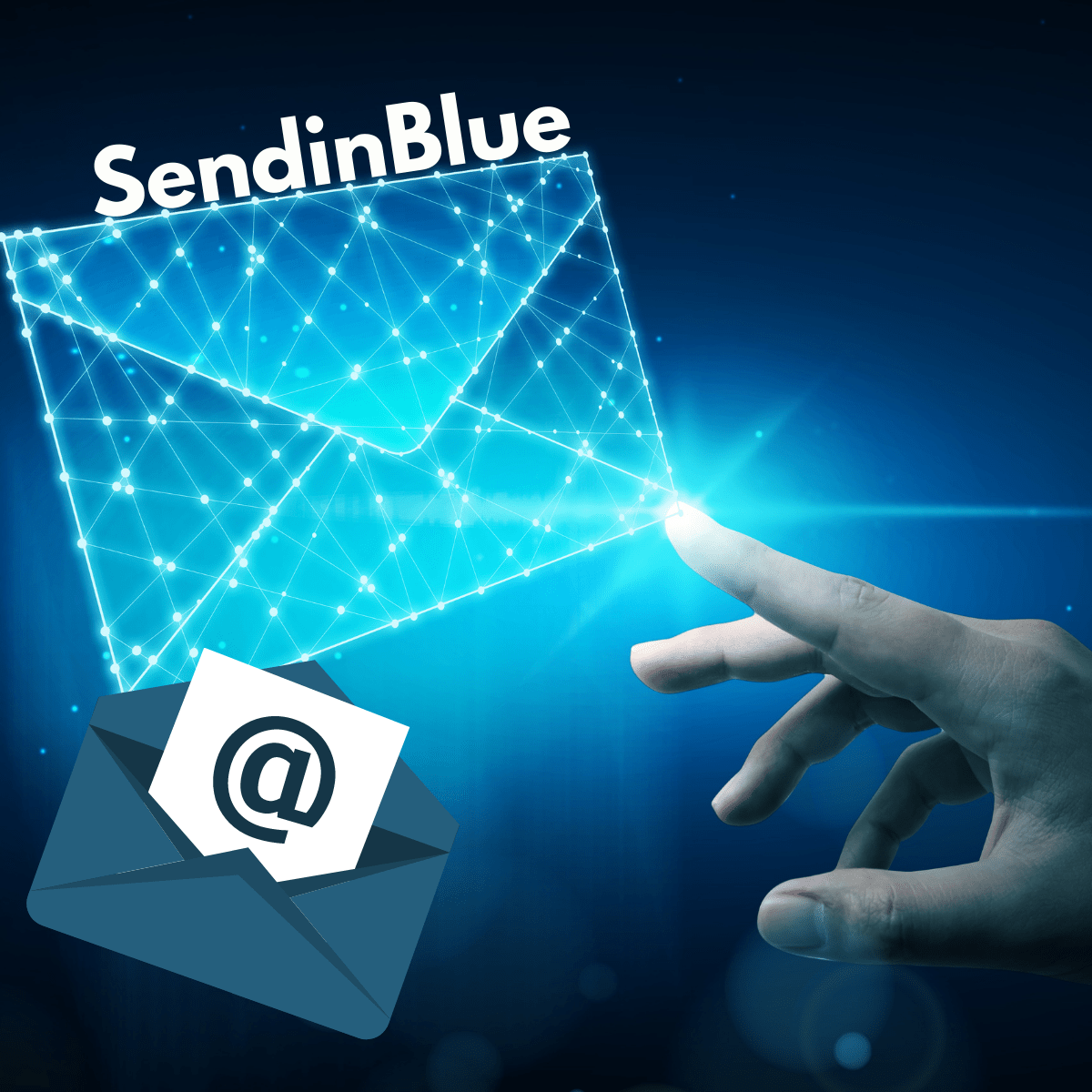Email Marketing Manager
Email Marketing Manager: A Comprehensive Career Guide
An Email Marketing Manager orchestrates a company's email communication strategies, playing a vital role in nurturing leads, engaging customers, and driving business growth. This position sits at the intersection of marketing, technology, and communication, requiring a blend of creativity, analytical prowess, and strategic thinking. They are responsible for planning, creating, sending, and analyzing email campaigns to achieve specific business objectives.
Working as an Email Marketing Manager can be exciting for those who enjoy crafting compelling messages and seeing the direct impact of their work on business results. It involves understanding audience psychology, leveraging technology for automation and personalization, and constantly adapting to evolving digital trends. The ability to measure campaign success through data makes it a rewarding field for analytical minds who also possess a creative flair.
Introduction to the Role of an Email Marketing Manager
This section provides a foundational understanding of what an Email Marketing Manager does, the environment they operate in, and how the role has evolved.
Definition and Core Responsibilities
An Email Marketing Manager is a marketing professional who specializes in planning, executing, and optimizing email marketing campaigns. Their core responsibilities often include developing email strategies, managing email lists, creating email content (often collaborating with copywriters and designers), setting up email automation workflows, segmenting audiences for targeted messaging, and analyzing campaign performance.
They ensure that emails are delivered successfully, comply with regulations, and align with the overall marketing goals of the organization. This involves using specialized Email Service Providers (ESPs) or marketing automation platforms to manage and send emails effectively. Ultimately, their goal is to use email as a channel to build relationships with prospects and customers, drive engagement, and generate leads or sales.
The role requires a strategic mindset to align email efforts with broader business objectives, analytical skills to interpret data and optimize campaigns, and communication skills to craft messages that resonate with the target audience.
Role in Modern Digital Marketing Ecosystems
In today's complex digital marketing landscape, email marketing remains a highly effective channel, often yielding a significant return on investment. The Email Marketing Manager is central to harnessing this potential. They integrate email strategies with other digital channels like social media, content marketing, and paid advertising to create cohesive customer journeys.
Email serves as a direct line of communication to nurture leads generated from other channels, re-engage inactive customers, and foster loyalty among existing ones. By segmenting audiences and personalizing messages, Email Marketing Managers deliver relevant content that drives conversions and strengthens brand relationships. They work closely with other marketing team members, sales teams, and sometimes product teams to ensure consistent messaging and a seamless customer experience.
Their ability to track user behavior through email interactions provides valuable data that informs not only email strategy but also broader marketing decisions. This makes the role crucial for understanding customer engagement and optimizing the overall marketing mix.
These courses provide a solid foundation in digital marketing principles, which are essential context for understanding the Email Marketing Manager's role.
Key Industries Employing Email Marketing Managers
Email Marketing Managers are in demand across a wide range of industries. E-commerce and retail businesses rely heavily on email marketing for promotions, cart abandonment recovery, and customer retention. Technology companies, including SaaS providers, use email to nurture leads, onboard new users, and announce product updates.
Media and publishing companies leverage email newsletters to distribute content and drive traffic. Non-profit organizations use email for fundraising, engaging supporters, and communicating their mission. Financial services, travel and hospitality, and education sectors also frequently employ Email Marketing Managers to communicate with their respective audiences.
Essentially, any organization that seeks to build and maintain relationships with a large audience online can benefit from the expertise of an Email Marketing Manager. The specific tactics might vary by industry, but the core principles of effective email communication remain consistent.
Evolution of the Role from Traditional Marketing
The role of the Email Marketing Manager evolved from traditional direct mail and general marketing positions. Early email marketing was often batch-and-blast, sending generic messages to large lists. However, with advancements in technology and a greater understanding of digital consumer behavior, the role has become significantly more sophisticated.
Modern Email Marketing Managers focus on personalization, segmentation, automation, and data analysis. The shift was driven by the need for more relevant and targeted communication in an increasingly crowded digital space. Regulations like GDPR and CAN-SPAM also necessitated a more responsible and consent-based approach.
Today's Email Marketing Manager is often a data-savvy strategist who understands customer lifecycle marketing, user experience (UX), and the technical aspects of email deliverability and automation platforms. While rooted in traditional marketing principles, the role now requires a distinct set of digital skills and a continuous learning mindset.
Key Responsibilities of an Email Marketing Manager
This section details the primary tasks and duties that define the day-to-day work and strategic functions of an Email Marketing Manager.
Campaign Strategy Development and Execution
A core responsibility is developing comprehensive email marketing strategies aligned with business goals. This involves defining campaign objectives (e.g., lead generation, sales, engagement), identifying target audiences, and determining the types of emails to send (e.g., newsletters, promotional offers, automated sequences).
Execution involves managing the entire campaign lifecycle: planning the content calendar, overseeing email creation (copywriting, design, coding), setting up campaigns in the ESP, testing emails across different clients and devices, scheduling sends, and monitoring performance.
Strategic planning also includes deciding on send frequency, A/B testing elements like subject lines or calls-to-action, and integrating email campaigns with other marketing initiatives for maximum impact.
These courses offer insights into developing effective marketing strategies and plans.
Audience Segmentation Techniques
Effective email marketing relies on sending relevant messages to the right people. Email Marketing Managers use segmentation techniques to divide their email lists into smaller, more targeted groups based on various criteria. Common segmentation criteria include demographics (age, location), psychographics (interests, lifestyle), behavioral data (purchase history, website activity, email engagement), and subscription preferences.
By segmenting audiences, managers can personalize email content and offers, making them more relevant and engaging for each recipient. This increases open rates, click-through rates, and conversions while reducing unsubscribe rates. Mastering segmentation requires understanding the available data and using the capabilities of the email marketing platform effectively.
Advanced techniques might involve dynamic content, where different parts of an email change based on the recipient's segment, further enhancing personalization at scale.
Performance Analytics and ROI Measurement
Measuring campaign performance and demonstrating return on investment (ROI) is crucial. Email Marketing Managers track key metrics such as open rates, click-through rates (CTR), conversion rates, bounce rates, unsubscribe rates, and revenue generated from email campaigns.
They use analytics tools within their ESP and potentially web analytics platforms like Google Analytics to monitor these metrics. Analysis involves identifying what works well, what doesn't, and why. This includes comparing the performance of different campaigns, segments, and A/B test variations.
Reporting these findings to stakeholders and using the insights to optimize future campaigns is a key part of the role. Demonstrating the financial impact of email marketing efforts helps justify budget and resources allocated to the channel.
These courses delve into marketing analytics and measurement, essential for evaluating email campaign success.
These books provide deeper insights into marketing analytics and strategy.
Compliance with Data Privacy Regulations
Email Marketing Managers must ensure all email activities comply with relevant data privacy laws and regulations. Key regulations include the General Data Protection Regulation (GDPR) in Europe and the CAN-SPAM Act in the United States. These laws govern how businesses can collect consent, manage email lists, and what information must be included in commercial emails.
Compliance involves practices like obtaining explicit opt-in consent before sending marketing emails (especially under GDPR), providing a clear and easy way for recipients to unsubscribe (opt-out), honoring opt-out requests promptly, accurately identifying the sender, and including a physical mailing address in emails.
Staying updated on these regulations and ensuring the company's email practices adhere to them is a critical responsibility to avoid hefty fines and maintain brand reputation. This often requires collaboration with legal or compliance teams.
Essential Skills for Success
Excelling as an Email Marketing Manager requires a diverse mix of technical, analytical, creative, and interpersonal skills.
Technical Proficiency with Email Platforms (ESPs)
A strong grasp of Email Service Providers (ESPs) and marketing automation platforms is fundamental. Managers need to be proficient in using these tools to build emails, manage lists, set up automated workflows (like welcome series or cart abandonment emails), segment audiences, run A/B tests, and pull performance reports.
Familiarity with common platforms such as Mailchimp, Constant Contact, HubSpot, Salesforce Marketing Cloud, or Klaviyo is often expected. While platforms share core functionalities, each has its nuances. Technical skills might also include basic HTML and CSS for customizing email templates and troubleshooting rendering issues across different email clients.
Understanding email deliverability factors – such as sender reputation, authentication protocols (SPF, DKIM, DMARC), and list hygiene – is also a critical technical skill to ensure emails reach the inbox.
These courses help build proficiency with specific email marketing platforms and techniques.
Data Analysis and A/B Testing Methodologies
Email Marketing Managers must be adept at interpreting data to understand campaign performance and drive improvements. This involves analyzing key metrics (opens, clicks, conversions, etc.), identifying trends, and drawing actionable insights. Proficiency with spreadsheet software like Excel or Google Sheets is often necessary for deeper analysis.
A/B testing (or split testing) is a core methodology used to optimize email elements. Managers need to know how to design, implement, and analyze A/B tests for components like subject lines, call-to-action buttons, email copy, send times, or visual layouts. A methodical approach to testing helps systematically improve campaign results over time.
Strong analytical skills enable managers to move beyond simple reporting and provide strategic recommendations based on data, ultimately maximizing the effectiveness of the email channel.
These courses focus on analytics and testing within the marketing context.
Copywriting and UX Principles
While they may collaborate with dedicated copywriters and designers, Email Marketing Managers need strong skills in crafting compelling email content. This includes writing engaging subject lines that encourage opens, clear and concise body copy that communicates value, and persuasive calls-to-action (CTAs) that drive clicks.
Understanding basic User Experience (UX) principles as they apply to email is also important. This involves designing emails that are easy to read and navigate, ensuring CTAs are prominent, and optimizing for mobile viewing (responsive design), as a large portion of emails are opened on smartphones.
A good grasp of copywriting and UX helps create emails that not only look good but also effectively achieve their communication and conversion goals. Attention to detail is critical to avoid typos or broken links.
This course specifically addresses copywriting skills, a vital component of effective email marketing.
These books offer foundational knowledge in advertising and influence, which inform effective copywriting.
Project Management and Cross-Team Collaboration
Email Marketing Managers often juggle multiple campaigns and projects simultaneously. Strong project management skills are essential for planning tasks, managing timelines, coordinating resources (like designers or copywriters), and ensuring campaigns are delivered on schedule.
Collaboration is key, as email marketing rarely exists in a silo. Managers need to work effectively with other marketing team members (social media, content, paid ads), sales teams (for lead handoff), product teams (for announcements), and sometimes IT or data teams. Clear communication and the ability to manage stakeholder expectations are vital.
Organizational skills and the ability to prioritize tasks help ensure smooth workflow and successful campaign execution, especially in fast-paced environments.
This book offers insights into managing complex projects and teams.
Formal Education Pathways
While practical experience is highly valued, certain educational backgrounds can provide a strong foundation for a career as an Email Marketing Manager.
Relevant Undergraduate Degrees
A bachelor's degree in Marketing is perhaps the most common educational background. These programs typically cover foundational marketing principles, consumer behavior, market research, and communication strategies, all relevant to email marketing.
Degrees in Communications, Business Administration, Advertising, or even English can also provide applicable skills. Communications programs emphasize writing and messaging, business degrees offer a broader understanding of organizational goals, and advertising degrees focus on persuasive communication.
Regardless of the specific major, coursework related to digital marketing, statistics, data analysis, and writing is particularly beneficial for aspiring Email Marketing Managers.
These courses cover fundamental marketing concepts often taught in undergraduate programs.
Specialized Graduate Programs
While not always necessary, a master's degree can enhance strategic thinking and analytical capabilities. Relevant graduate programs might include a Master's in Marketing, Digital Marketing, Integrated Marketing Communications (IMC), or an MBA with a marketing concentration.
These programs often offer deeper dives into marketing strategy, data analytics, customer relationship management (CRM), and advanced digital marketing techniques. They can be particularly useful for those aiming for leadership roles within marketing departments.
However, the decision to pursue a graduate degree should weigh the cost and time commitment against the potential career benefits, as hands-on experience and specific skill certifications are often highly valued in this field.
Certification Programs
Industry-recognized certifications can be a valuable way to demonstrate specific skills and knowledge in email marketing or broader digital marketing. Various organizations and platforms offer certifications covering topics like email marketing strategy, marketing automation, specific ESP platforms (e.g., Salesforce Marketing Cloud Email Specialist, HubSpot Email Marketing), or general digital marketing.
Completing certification programs can supplement formal education or provide a structured learning path for those transitioning from other fields. They signal to employers a commitment to professional development and a validated level of expertise in key areas.
Look for certifications from reputable providers or those directly associated with widely used marketing technology platforms. OpenCourser's Marketing category lists numerous courses, some of which may lead to certifications.
Academic Research Opportunities
For those inclined towards research, academic pathways can explore the theoretical underpinnings of email marketing effectiveness, consumer psychology in digital communication, or the impact of emerging technologies like AI on email engagement.
Research opportunities might exist within university marketing departments or business schools. Topics could include optimizing email personalization algorithms, studying the long-term effects of email frequency on customer loyalty, or analyzing the ethical implications of data usage in email marketing.
While direct academic research is less common for practitioners focused on campaign execution, an understanding of research methodologies can enhance analytical skills and the ability to critically evaluate industry trends and best practices.
Alternative Learning Routes
A formal degree is not the only path to becoming an Email Marketing Manager. Practical skills and demonstrated experience are highly valued, and several alternative routes can lead to success in this field, especially for career changers.
Project-Based Learning Approaches
Hands-on experience is arguably the best way to learn email marketing. Undertaking projects, either personal or freelance, allows learners to apply concepts in real-world scenarios. This could involve creating an email newsletter for a personal blog, helping a small business set up an email list and initial campaigns, or volunteering for a non-profit organization.
Project-based learning helps solidify understanding of ESPs, list management, content creation, and basic analytics. Platforms like OpenCourser feature many project-based courses where learners complete specific tasks using industry tools, providing tangible outcomes for their portfolios.
Focusing on projects demonstrates initiative and practical ability, which can be very attractive to potential employers, sometimes even more so than purely academic credentials.
These courses focus on building practical email marketing skills through projects.
Portfolio Development Strategies
A strong portfolio showcasing successful email campaigns and results is essential, particularly for those without extensive formal experience. Your portfolio should include examples of emails you've created (highlighting design and copy), descriptions of the campaign strategy and target audience, and data on the results achieved (e.g., open rates, CTR, conversions).
Include examples of different types of campaigns, such as newsletters, promotional emails, and automated sequences. If possible, demonstrate your ability to use segmentation and personalization effectively. Quantify your achievements whenever possible.
Even if working on personal projects, document your process and results thoroughly. A well-presented portfolio provides concrete evidence of your skills and ability to deliver results, making a compelling case to hiring managers.
This book offers guidance on building a personal brand, which is helpful when presenting your portfolio.
Industry Certifications
As mentioned earlier, industry certifications offer a structured way to learn and validate specific skills. For those pursuing alternative learning paths, certifications can be particularly valuable in demonstrating competence to employers.
Focus on certifications that cover core email marketing principles, proficiency in widely used ESPs or marketing automation platforms, or related areas like digital analytics or copywriting. Many certification programs are available online and can be completed flexibly.
Completing relevant online courses, even those not leading to a formal certification, can also significantly bolster your skillset. OpenCourser's extensive catalog allows you to browse courses across various platforms and topics relevant to email marketing. Use the "Save to list" feature to curate your learning path.
These courses provide comprehensive training in email marketing, suitable for gaining foundational or advanced skills.
Explore these books for in-depth knowledge on email marketing strategies and rules.
Mentorship Opportunities
Connecting with experienced professionals in the field can provide invaluable guidance, insights, and support. Mentors can offer advice on skill development, career navigation, and industry best practices. They might share their experiences, review your work, and help you build your professional network.
Look for mentorship opportunities through industry associations, online communities (like LinkedIn groups focused on digital marketing), or local marketing meetups. Some companies also offer formal mentorship programs.
Building relationships with established professionals can open doors and accelerate learning, providing practical advice that complements formal or self-directed study. Don't hesitate to reach out respectfully to professionals whose work you admire.
Career Progression and Hierarchy
Understanding the typical career path helps professionals plan their long-term trajectory in the email marketing field.
Entry-Level Precursor Roles
Individuals often start in roles like Email Marketing Coordinator, Email Marketing Assistant, or Junior Email Marketing Specialist. These positions typically involve executing tasks under the guidance of a manager, such as building emails using templates, managing lists, scheduling campaigns, and pulling basic reports.
Other related entry-level roles in digital marketing, such as Marketing Assistant, Digital Marketing Coordinator, or even Content Assistant, can also serve as stepping stones. Experience gained in these roles provides foundational knowledge of marketing principles and tools.
These initial roles focus on developing core technical skills with ESPs, understanding campaign workflows, and learning the basics of email analytics and compliance.
Promotion Criteria and Timelines
Promotion to an Email Marketing Manager role typically requires demonstrating proficiency in campaign execution, developing strategic thinking, strong analytical skills, and the ability to manage projects independently. This usually involves several years of experience in a precursor role.
Key criteria often include consistently meeting or exceeding campaign goals, successfully managing complex projects, showing initiative in optimizing campaigns based on data, and potentially demonstrating leadership potential or mentoring junior team members.
Timelines vary based on individual performance, company size, and organizational structure, but progressing from an entry-level specialist to a manager role might take approximately 3-5 years. Continuous learning and proactively seeking opportunities to take on more responsibility can accelerate this progression.
Lateral Moves into Related Fields
The skills developed as an Email Marketing Manager are highly transferable to other areas within digital marketing and beyond. Lateral moves might include roles like Marketing Automation Manager (focusing more broadly on automation platforms and strategy), CRM Manager (focusing on customer data and relationship management), or Digital Marketing Manager (overseeing multiple digital channels).
Skills in data analysis, segmentation, and understanding customer journeys are also valuable in roles like Marketing Analyst or Customer Insights Manager. Strong copywriting skills could lead to roles in Content Marketing or pure Copywriting.
The experience gained in managing direct customer communication and driving measurable results provides a solid foundation for various strategic marketing positions.
Executive-Level Advancement Paths
With significant experience and demonstrated strategic leadership, Email Marketing Managers can advance to more senior roles. This might include Director of Email Marketing, Director of CRM, Director of Marketing Automation, or Head of Lifecycle Marketing.
Further advancement could lead to broader executive positions like VP of Marketing or Chief Marketing Officer (CMO), especially in organizations where email and CRM are central to the business strategy. These roles involve overseeing larger teams, managing significant budgets, and setting the overall direction for marketing and customer engagement strategies.
Executive paths require strong leadership skills, a deep understanding of business objectives, and the ability to integrate email and CRM strategies into the company's overall growth plan.
Industry Tools and Technologies
Proficiency with the right tools is essential for an Email Marketing Manager. This section covers the key categories of software they use.
Email Service Platforms Comparison
Email Service Providers (ESPs) are the core platforms used for creating, sending, and tracking emails. Examples range from beginner-friendly options like Mailchimp and Constant Contact to more advanced platforms like HubSpot, Salesforce Marketing Cloud, Adobe Campaign, Oracle Eloqua, and Klaviyo (popular in e-commerce).
Managers need to understand the capabilities of different ESPs regarding list management, segmentation, automation features, template building, A/B testing, analytics, and integrations. The choice of platform often depends on the company's size, industry, budget, and technical requirements.
Experience with one or more major ESPs is typically required. While core concepts are transferable, familiarity with the specific platform used by an employer is a significant advantage.
These courses provide hands-on experience with popular ESPs.
Marketing Automation Systems
Many ESPs incorporate marketing automation features, but some companies use dedicated Marketing Automation Platforms (MAPs) like HubSpot, Marketo (Adobe), or Pardot (Salesforce). These systems offer more extensive capabilities beyond email, including lead scoring, multi-channel campaign management, and deeper CRM integration.
Email Marketing Managers working with MAPs need to understand how to build complex automated workflows (or "drip campaigns") triggered by user behavior or data changes. This allows for highly personalized and timely communication across the customer lifecycle.
Proficiency in marketing automation involves not just technical know-how but also strategic thinking about designing effective customer journeys and nurturing sequences.
CRM Integration Requirements
Integrating the ESP or MAP with the company's Customer Relationship Management (CRM) system (like Salesforce, Microsoft Dynamics, or HubSpot CRM) is often crucial. This integration allows for seamless data flow between marketing and sales, providing a unified view of customer interactions.
Email Marketing Managers need to understand how this integration works and how data syncs between the platforms. This enables sophisticated segmentation based on CRM data (e.g., lead status, purchase history) and allows sales teams to see marketing engagement history for their contacts.
Ensuring data accuracy and consistency between systems is vital for effective personalization, lead nurturing, and reporting.
Emerging AI Applications
Artificial Intelligence (AI) is increasingly impacting email marketing. AI tools can assist with various tasks, such as writing subject lines and email copy, optimizing send times for individual recipients, predicting which segments are most likely to engage, and generating personalized product recommendations.
AI-powered platforms analyze vast amounts of data to identify patterns and make predictions, potentially improving campaign performance significantly. Some ESPs and MAPs are incorporating AI features directly into their platforms, while standalone AI writing and optimization tools are also available.
Email Marketing Managers should stay informed about AI developments and understand how these tools can augment their strategies and improve efficiency. While AI can automate tasks, human oversight, creativity, and strategic direction remain essential. Based on search results, AI is seen as an evolution, automating routine tasks and freeing marketers for more strategic work, rather than a wholesale replacement of jobs.
These courses explore the intersection of AI and marketing.
Ethical Considerations in Email Marketing
Operating responsibly and ethically is paramount in email marketing, both for legal compliance and for maintaining audience trust.
GDPR and Global Privacy Laws
The General Data Protection Regulation (GDPR) in the EU has set a high standard for data privacy globally. Email marketers targeting individuals in the EU must comply with its strict rules regarding consent, data processing, and individual rights (like the right to access or erase data). Key GDPR requirements include obtaining explicit, informed, and unambiguous consent *before* sending marketing emails and clearly documenting this consent.
Other significant regulations include the CAN-SPAM Act in the US, which mandates clear identification, opt-out mechanisms, and accurate sender information. Canada's Anti-Spam Legislation (CASL) also has strict consent requirements.
Email Marketing Managers must be knowledgeable about the laws applicable to their target audiences and ensure all practices comply, often working with legal counsel to interpret and implement requirements correctly.
These resources offer guidance on navigating privacy regulations.
record:18
record:7
Opt-In/Opt-Out Best Practices
Beyond legal requirements, ethical email marketing prioritizes user consent and control. Best practices include using clear opt-in methods (like unchecked boxes) rather than pre-checked boxes or implied consent. Double opt-in (where users confirm their subscription via a confirmation email) is often recommended to ensure genuine interest and build a higher quality list.
Making it easy for subscribers to opt-out (unsubscribe) is equally important. The unsubscribe link should be clearly visible in every email, and the process should be simple, ideally requiring only one or two clicks. Honoring opt-out requests promptly is legally required and essential for maintaining sender reputation.
Respecting user preferences builds trust and leads to a more engaged and valuable email list in the long run.
Data Security Requirements
Email Marketing Managers handle personal data (email addresses, names, behavioral data, etc.) and have a responsibility to protect it. This involves adhering to company security policies and ensuring that the email platforms and processes used are secure.
Data security measures might include using secure login protocols, managing user access permissions appropriately, understanding data encryption practices used by the ESP, and being aware of potential phishing or data breach risks. GDPR also mandates implementing appropriate technical and organizational measures to ensure data security.
Working with IT or security teams to understand and implement best practices for data handling and storage is crucial for protecting subscriber information and complying with regulations.
Sustainability in Email Campaigns
While less discussed than privacy, environmental sustainability is an emerging consideration. Digital activities, including sending and storing emails, consume energy and contribute to carbon footprints. While the impact of individual emails is small, the cumulative effect of billions of emails sent daily is significant.
Sustainable practices might include optimizing email file sizes (especially images), regularly cleaning email lists to remove inactive subscribers (reducing unnecessary sends and storage), and being mindful of send frequency. Sending targeted, relevant emails rather than mass, untargeted blasts is not only better marketing but also potentially more sustainable.
While not yet a primary focus for most roles, awareness of the environmental impact of digital activities is growing, and future best practices may incorporate sustainability considerations more explicitly.
Frequently Asked Questions
This section addresses common questions prospective and current Email Marketing Managers might have.
Essential education requirements vs experience?
While a bachelor's degree in Marketing or a related field is common, it's not always strictly required. Many successful Email Marketing Managers build their careers through hands-on experience, self-study, and certifications. Employers increasingly value demonstrated skills and a strong portfolio showcasing successful campaigns and results.
Experience using specific email marketing platforms, understanding analytics, and proven copywriting abilities can often outweigh formal education credentials. However, a degree can provide a strong theoretical foundation and may be preferred by some organizations, particularly larger corporations.
Ultimately, a combination of relevant skills, practical experience (even from personal projects or freelance work), and potentially targeted certifications is often the most effective pathway into the role.
Career transition feasibility from unrelated fields?
Transitioning into email marketing from an unrelated field is feasible, especially if you can demonstrate transferable skills. Skills from fields like writing/editing, data analysis, customer service, project management, or even graphic design can be relevant.
Focus on acquiring the specific technical skills needed (e.g., learning an ESP, basic HTML/CSS) through online courses or self-study. Build a portfolio through personal projects, freelance work, or volunteering to demonstrate practical application. Highlight your transferable skills and passion for digital marketing in your resume and interviews.
Networking with professionals in the field and potentially seeking mentorship can provide guidance and open doors. While it requires effort to bridge skill gaps, the demand for skilled digital marketers makes it an achievable transition for dedicated individuals. OpenCourser's Learner's Guide offers tips for structuring self-learning paths.
Typical salary progression benchmarks?
Salary progression depends heavily on experience, location, company size, industry, and demonstrated impact. Based on recent search results (April 2025), entry-level roles like Email Marketing Specialist might start around $60,000-$70,000 USD annually.
Mid-level Email Marketing Managers typically earn more, with averages cited ranging from approximately $87,000 (ZipRecruiter) to $91,000 (Coursera article citing Glassdoor) to $112,000-$115,000 (Built In, Salary.com) in the US. The range is wide, with Salary.com noting a common range of $101,907 to $129,503. Top earners can exceed $119,000 (ZipRecruiter 90th percentile) or even $141,990 (Salary.com high end).
Senior roles like Director of Email Marketing can command significantly higher salaries, potentially exceeding $144,000 USD. Salaries can vary significantly by location (e.g., London averages cited were £33,000 - £55,000). Continuously developing skills, taking on more strategic responsibility, and demonstrating measurable ROI are key factors in salary growth.
Impact of AI on job security?
AI is transforming email marketing, but it's generally viewed as augmenting rather than replacing human roles. AI tools can automate repetitive tasks (like writing drafts, segmenting lists, optimizing send times), freeing up marketers to focus on higher-level strategy, creativity, data analysis, and ensuring brand voice consistency.
Studies suggest AI enhances efficiency and campaign performance, but human oversight remains crucial for nuanced communication, ethical considerations, and strategic decision-making. The demand is shifting towards marketers who can effectively leverage AI tools as part of their skillset.
Job roles are evolving, requiring greater emphasis on strategic thinking, analytical skills, and creativity. Those who adapt and learn to work alongside AI are likely to see enhanced career opportunities, not obsolescence. Search results indicate AI will reshape, not eliminate, these jobs, with a projected 75% of marketers using AI by 2025.
Remote work prevalence in the field?
Email marketing is well-suited for remote work due to its digital nature. Many companies offer remote or hybrid arrangements for Email Marketing Managers. Search results confirm this trend, with one source stating 84% of surveyed B2B email marketers work remotely, and job boards like FlexJobs listing numerous remote positions.
The prevalence of remote work increased significantly following the pandemic and remains a common option. This provides flexibility but also requires strong self-discipline, communication skills, and the ability to collaborate effectively with distributed teams.
While some companies may prefer in-office or hybrid models, fully remote opportunities are widely available in the email marketing field, making it an attractive option for those seeking location independence.
Industry recognition metrics for professionals?
Professional recognition often comes from demonstrated results and contributions to the field. Key metrics include achieving significant improvements in campaign performance (e.g., increased engagement, conversions, ROI) for employers or clients.
Building a strong professional reputation through thought leadership (e.g., speaking at industry events, writing articles, participating in online communities), mentoring others, or contributing to successful, high-profile campaigns can also enhance recognition.
Formal awards from marketing organizations exist but are less common as day-to-day recognition metrics. Certifications from reputable bodies or platforms can serve as validated credentials. Ultimately, consistent, high-quality work and measurable impact are the primary drivers of recognition within the industry.
Becoming an Email Marketing Manager offers a dynamic career path blending creativity, technology, and strategy. It requires continuous learning to keep pace with evolving tools and regulations but provides the satisfaction of directly impacting business growth and customer relationships through effective communication.































